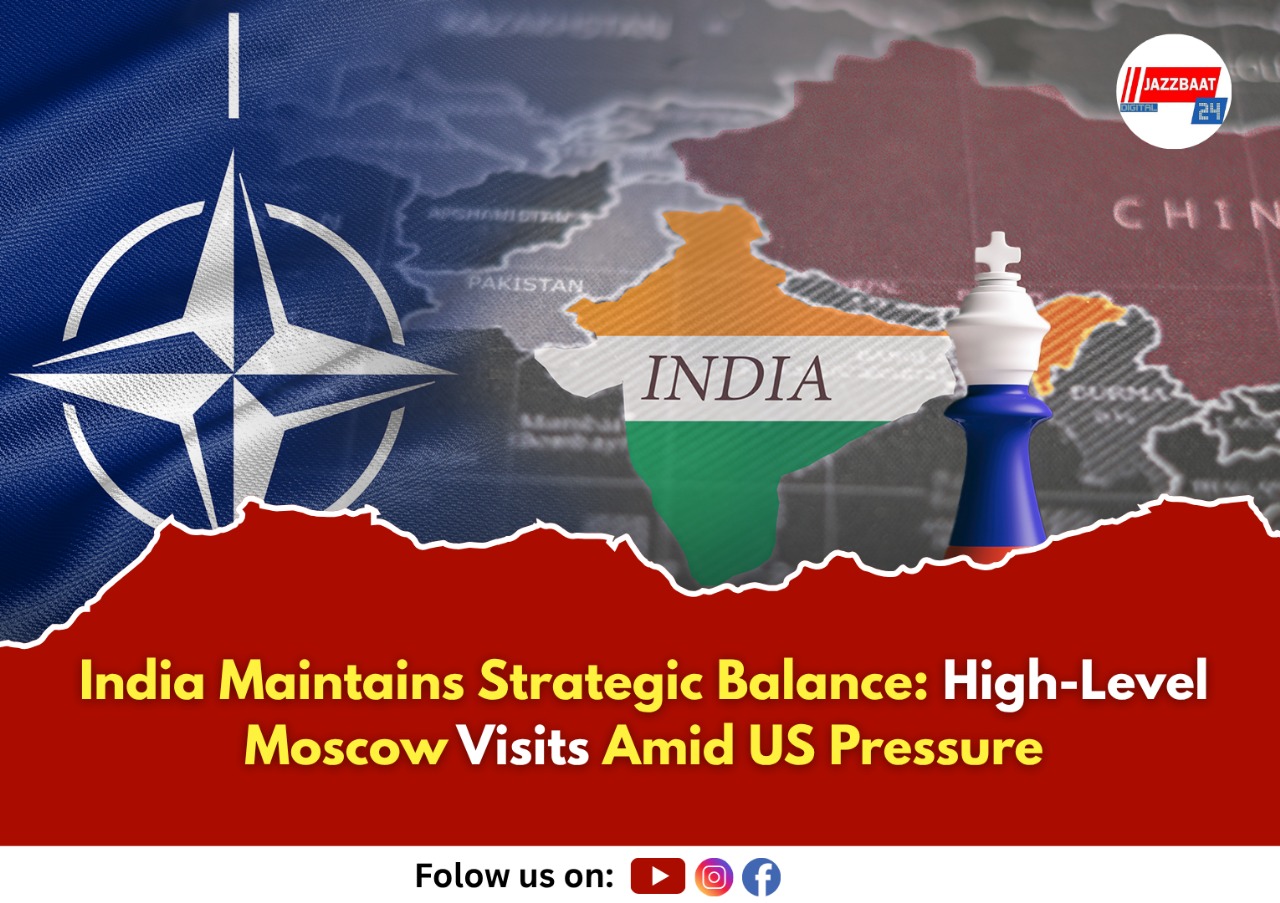
New Delhi stands firm on independent foreign policy as Doval and Jaishankar prepare for crucial Russia talks
India is sending a clear diplomatic message this month as National Security Adviser Ajit Doval and External Affairs Minister S. Jaishankar prepare for separate high-level visits to Moscow, despite mounting pressure from the United States to distance itself from Russia.
The timing of these visits is particularly significant, coming just days after President Donald Trump's harsh criticism of India-Russia ties. Trump recently labeled both nations as having "dead economies" and slapped a punitive 25% tariff on Indian goods, while warning of additional penalties for countries maintaining strategic trade relationships with Russia.
Doval is expected to travel to Moscow in early August, with Jaishankar following mid-month. Their agendas will be packed with critical discussions on defense collaboration, regional security issues, and expanding trade partnerships a clear indication that India refuses to compromise its strategic autonomy under external pressure.
The defense dimension remains particularly crucial. Reports suggest India is exploring additional purchases of S-400 missile defense systems, which proved instrumental during recent military operations. There's also speculation about potential acquisitions of advanced Su-57 fighter jets, signaling a deepening military-technical partnership that has irked Washington.
At the heart of US concerns lies India's dramatic shift in energy imports. Before the Ukraine conflict, Russian crude oil constituted merely 0.2% of India's total petroleum purchases. Today, that figure has skyrocketed to nearly 40%, making India Russia's second-largest oil buyer after China.
This transformation represents more than just commercial pragmatism it's about energy security for a nation of 1.4 billion people. Indian officials argue that diversified energy sources protect the country from supply disruptions and price volatility that have historically plagued global markets.
The forthcoming discussions will extend far beyond energy. Arctic cooperation is emerging as a new frontier, with Russia keen to increase Indian participation in resource exploration in the polar region. There's also growing collaboration in civil nuclear technology, with discussions around establishing additional nuclear power plants in India.
The human dimension adds another layer to this partnership. Indian workforce participation in Russian construction and textile sectors is expanding, with a formal manpower agreement potentially on the horizon.
India's approach reflects a sophisticated understanding of 21st-century geopolitics. As Ministry of External Affairs spokesperson Randhir Jaiswal recently emphasised, "Our bilateral relationships with various countries stand on their merit and should not be seen from the prism of a third country."
This principled stance resonates with India's historical non-alignment philosophy, adapted for contemporary realities. New Delhi recognises that diversified partnerships, whether with Washington, Moscow, or other global power,s serve its national interests better than exclusive alignments.
The upcoming visits will likely reinforce India's commitment to strategic autonomy while potentially opening new avenues for cooperation. As global power dynamics continue shifting, India's ability to maintain balanced relationships across different camps may prove to be its greatest diplomatic asset.
For now, the message from New Delhi remains clear: India will chart its own course, regardless of external pressure or criticism.